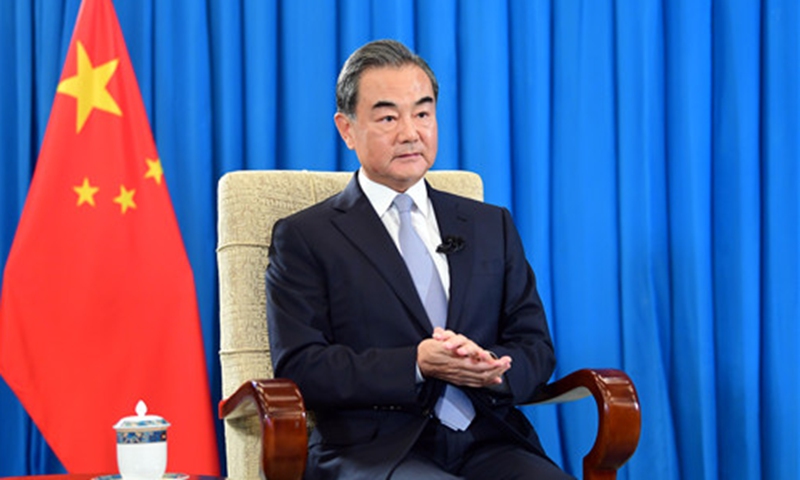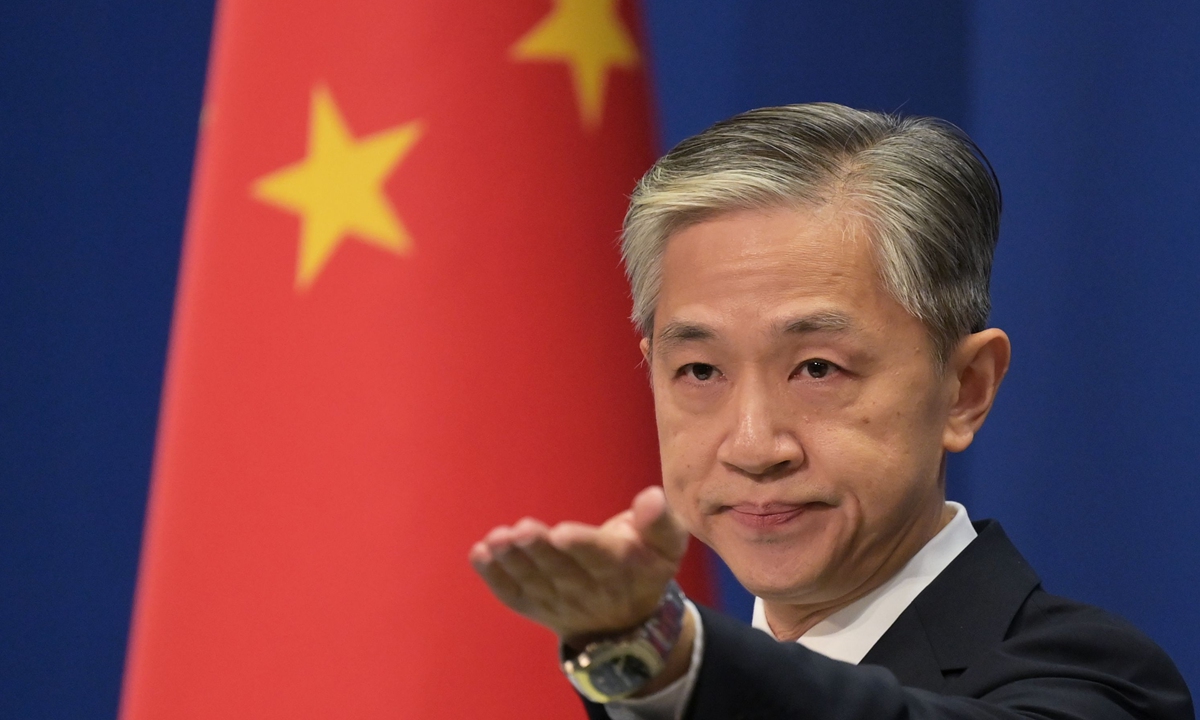Wang Yi's attendance of follow-up meeting of FOCAC signals steady progress of ties

State Councilor and Foreign Minister Wang Yi
Chinese State Councilor and Foreign Minister Wang Yi on Thursday held virtual discussions with African leaders in the 8th Ministerial Conference of the Forum on China-Africa Cooperation (FOCAC) against the backdrop of a complex and volatile international environment and the ongoing COVID-19 pandemic.
China-Africa cooperation is based on concrete measures and projects, yielding tangible benefits, and the strong partnership is common interest-oriented and won't be shaken by US attempts to sow discord, analysts said.
Wang put out three consensus achieved during the meeting: all participants are committed to promoting the building of a China-Africa community with a shared future in the new era, to strengthening solidarity and cooperation among developing countries, and to continuing to polish the "golden brand" of FOCAC.
While announcing Wang Yi's attendance at the Thursday meeting, Chinese Foreign Ministry spokesperson Wang Wenbin said at a Wednesday routine press briefing that both China and Africa find it necessary to hold the coordinators' meeting to strengthen coordination and planning, match their approaches to cooperation, identify priority areas and key projects and make steady and solid progress in the follow-up work so as to deliver more benefits to the two peoples.
China will continue to follow the principles of sincerity, real results, amity and good faith and the principle of pursuing the greater good and shared interests, and work with the African side to inject new impetus into the growth of the China-Africa comprehensive strategic and cooperative partnership, Wang Wenbin said.
The coordinators' meeting is part of the FOCAC mechanism to check on follow-up work, but the attendance of a state councilor and foreign minister is uncommon, "signaling the great importance China attaches to its relations and cooperation with Africa," Liu Haifang, director of the Center for African Studies at Peking University, told the Global Times on Thursday.
The FOCAC is not just a forum, but also includes a large amount of coordination and communication through various meetings and channels, which guarantees that bilateral cooperation will advance steadily and robustly.
The foundation of China-Africa cooperation is solid and well fostered over many decades and Africa has been the destination of the Chinese foreign minister's first foreign visit in a year for 32 consecutive years.
Trade between China and Africa reached an all-time high in 2021 of $254 billion, from about $10 billion in 2000, according to Xinhua News Agency.
Liu also noted that through the COVID-19 pandemic and Russia-Ukraine conflicts, African countries have increasingly realized that direct aid is not resilient against major global challenges and the continent is striving to find internal driving forces for development.
The potential of China-Africa cooperation can therefore be better explored and diverse programs on infrastructure and industrial production are expected to prosper, Liu said.
Against the backdrop of China-US competition and the Ukraine crisis, Blinken visited South Africa, the Democratic Republic of Congo and Rwanda from August 7-12, on the heels of Russian Foreign Minister Sergey Lavrov's tour to the continent.
China never sees investment and cooperation with Africa as an exclusive opportunity, because "the continent is big enough to receive global partners." However, the US' true purpose behind its sudden interest in a continent Washington has long ignored is all too apparent.
"We're back to Cold War-style strategic diplomacy," in which superpowers try to convince African countries that their narrative is the right one, and vie for their support, The New York Times reported on August 7.
Africa suffered a great deal from colonialism and Western hegemony, and has seen through US' strategic calculations. Fulufhelo Netswera, Executive Dean of the Faculty of Management Sciences at the Durban University of Technology and a former director of the South African BRICS Think Tank, wrote in an opinion piece that the US has little chance of success in creating a wedge between China and Africa.
With its Cold War memory still fresh, African states won't be fooled by the West and are taking an independent and pragmatic approach in dealing with major powers. Though the influence of their colonial past remains strong, especially on security, African states are fighting for greater autonomy, experts said.

